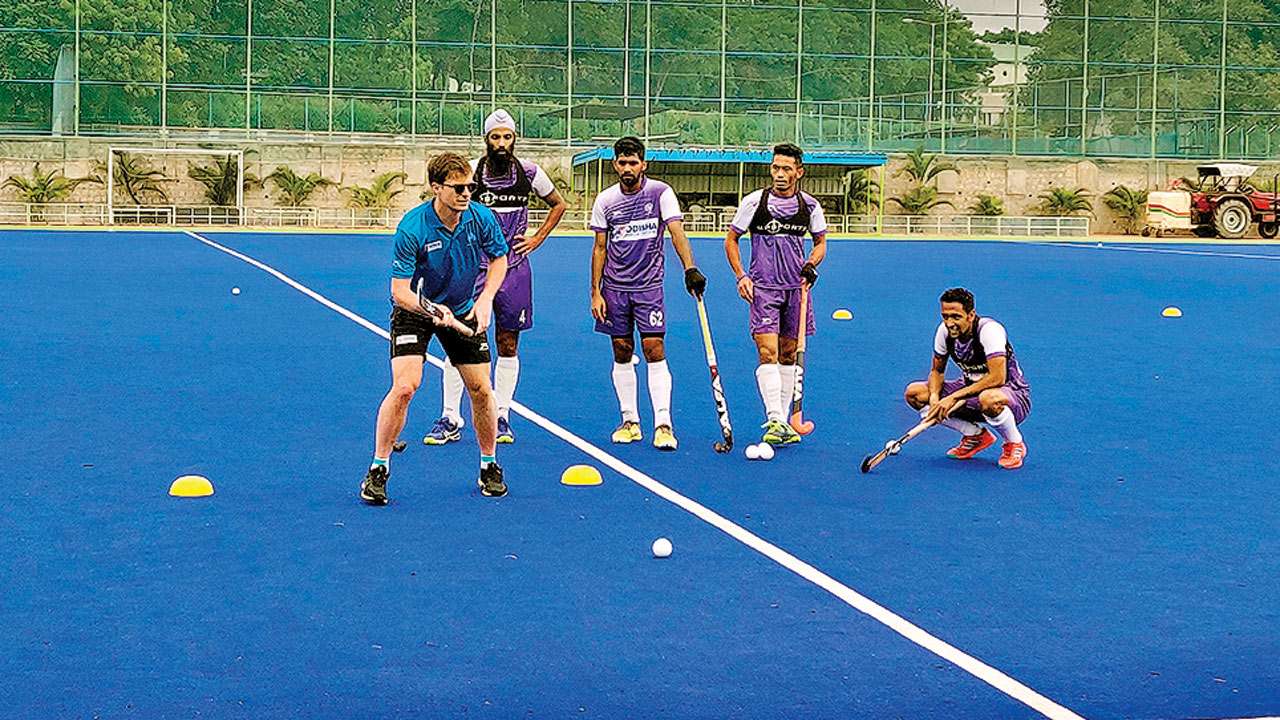
Fergus Kavanagh knows a thing or two about defending. The Dublin-born Kavanagh was an important cog in the defensive wheel of the Australia hockey team that won back-to-back gold medals in the 2010 and 2014 FIH World Cup, as also five consecutive FIH Champions Trophy from 2008 to 2012.
Invited by Hockey India to work with 14 defenders from its senior men's core group at a week-long camp in Bengaluru, the retired Kookaburras great talks to DNA about working on developing the defensive skills of not just the individual players but also of the team as a whole. Excerpts from an interview:
We're focussing on defensive skills. At a very high level, if you think of hockey in India, we all think of a natural attacking flair of scoring goals. I would like to help them become world-class defenders and a world-class defensive team. When you get to the major events, the World Cup or the Olympics, you have to have a solid defensive base to compete for the medals. I've played against a lot of these players and also with some of them in the HIL (Hockey India League). So, I think I have a good view of their strengths and what they can improve upon. They've already got some really good defenders, and my role is to help them become one of the best in the world. And for others, it is to help them improve their defensive skills in tackling, intercepting and marking.
I surely think so. It doesn't happen in a week, obviously. But I've seen some individual defenders from a few years ago who have stepped up and improved. Birendra Lakra, who I played with in Ranchi (in HIL), I've seen him develop into a world-class defender. I feel Harmanpreet Singh also has the potential to become a top defender.
As for the team, it takes time. I know from when I was with the Australia team, it took us months and years to develop the way we play in order to become a really good defensive unit. I think India are close, but there's still room for improvement. And that is the objective of the coaching unit of Graham (Reid) and Chris (Ciriello).
I definitely think it has. When I made my debut in 2007, it was actually against India, I think we won that game 5-2 or 5-3. And during that period, you'd see that India would score a lot of goals but would also concede a lot. Over the last few years, the defensive side of Indian hockey has really improved, and the focus has been put on defensive hockey. Because scoring goals and playing attacking hockey comes instinctively for the Indian players, the focus on defensive hockey individually and as a team has helped them. And that's why you're seeing Indian hockey improve in the world rankings.
It's really about changing the mindset and the thinking of every player. Everyone has to defend, it's not just the defenders' job. Sometimes, the strikers are the most important players to defend in a play. And if they are defending well, it makes everyone else's job easier and helps the collective defensive performance. So, it's a mindset thing, that when you don't have the ball, everyone has to defend. When that happens, you'll see that everyone is contributing. If you defend well as a team, it also means that you win the ball back more, and you get more opportunities to attack because the strikers will be intercepting and stealing the ball.
For me, defending is not passive, it should help in creating more goal-scoring opportunities and thereby more goals. It's a proactive thing, it's about taking control of the situation when you don't have the ball.
I think it's probably a combination of mental discipline — being able to stay calm and perform your role under pressure — and also confidence of the team. If that happens a few times, then in the last few minutes you can lose that confidence and become nervous. So, it's about trying to build that resilience that you can perform under pressure, and building your confidence that when it gets close and when it's towards the end of the game, you have faith in your ability and defensive skills as a team. And that too will take a bit of time.
The first thing is that you have to acknowledge the problem. We have to accept that 'Okay, this is something that happens, and we have to address it'. And then you have to talk about it as a team, that in these moments in a game or in a tournament when we're under pressure and when the other team has momentum, we have to come together as a team and have to have the confidence to ride the wave. It's also important to have the belief in your tactics, that when you're under the pump, the tactics will stand by you. Once you know that you have that mindset sorted, your skills will take care of itself even under these pressure situations.